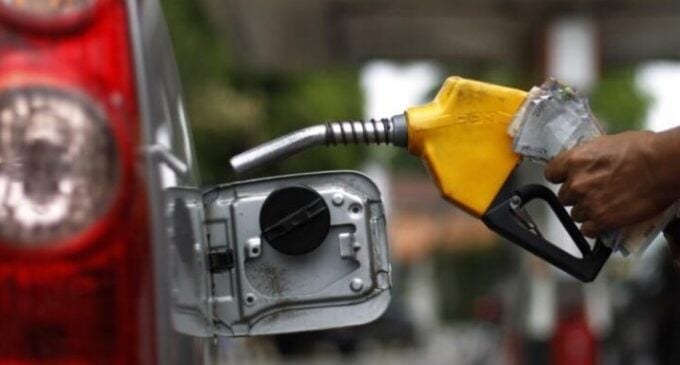Don’t just join fuel hike protests

BY OMOLE IBUKUN
Following plans within the government to increase fuel pump price to about N320 and N360 by February, the Nigerian Labour Congress (NLC) has commenced mobilisations for protests across all state capitals by January 27 and in the federal capital territory by February 1. The cacophonic response from the government to these preparations are reports of state governors calling for negotiations while the national economic council is calling for an increment to N302 with total removal of fuel subsidy by June. Petrol which currently sells at N162 to N165 determines the prices of lots of goods and services in the country and as such, it is easy to see the hardships such increment would mean for the common people.
It is therefore interesting to notice that despite this impending hardship, most Nigerians are not enthusiastic about the fuel price hike protests called by the NLC. Media chatter especially on social media shows that most netizens and opinion leaders are presently distracted with discussions over who contests and who wins the 2023 elections. The reason for this is not far-fetched. Most people do not trust that an organised labour-led protest will yield any results as per stopping the increments. This seems to be the basis why the mainstream discussions seem to be more about electoral solutions to the policy problems of the country.
The truth, though, is that these problems of Nigeria cannot wait until 2023. The hardships that fuel price increment will mean for an already poor population will make it easier for politicians to buy votes of desperately hungry voters come 2023, therefore the need to turn our attention back to the fuel price protests and take charge of our fate.
Already, the prices of other petroleum products e.g, cooking gas had doubled within the past year, making many families go hungry. This cannot wait until 2023. Food prices have gone up and the recent rice pyramid propaganda stunt of the federal government does not seem to be having any real effect on the market. These are issues that we cannot run away from or defer till the 2023 elections. This is why the same attention being paid to the 2023 elections must be paid to the fuel hike protests. This is the only way that the conversations about the 2023 elections will not be reduced to personalities and structures, but will be brought up to the level of policies, manifestoes and ideologies. In paying attention to the fuel hike protests, special attention must be paid to the leadership that the NLC is presently offering to the protests.
The character that has made the labour leadership unworthy of the trust of the Nigerian people is still as present as ever. Take the drinks tax, for example, a Finance Act was signed into law which placed a tax of ten naira per litre on carbonated and alcoholic drinks. As usual, spokespersons of the government gave the drinks companies being taxed a soft landing by suggesting that drinkers would be the ones to pay more, giving a dishonest excuse of addressing health risks of drinkers (very dishonest for a country that has allocated just nine dollars per head to the health of citizens in the 2022 budget).
Rather than condemn the tax on consumers and ask that the tax should be directed at the profit of those beverages companies, the labour leadership accepted that the confusion being sold by the government that the tax of the companies automatically meant a tax on the consumers and automatically means that the company would have to lay off workers. This is without any comment as per the amount of profit of these beverages companies, and how small this tax is compared to that profit.
This was the way the labour leadership used the workers as a cover to defend the profits of the bosses. This uncritical support of labour leaders for the management of beverages companies was up to the extent that the labour leaders asserted that the policy was tantamount to grand insensitivity to the plight of manufacturers as if the manufacturers were their primary constituency.
This position made by the leadership of the National Union of Food, Beverages and Tobacco Employees (NUFBTE) and Food, Beverages and Tobacco Senior Staff Association (FOBTOB) was echoed by the NLC leadership to the point that it was the members of the manufacturers’ body who cautioned the unions from embarking on a protest, as against the normal arrangement in which the unions are controlled democratically by assemblies of their members.
Yet, In 2018, when Sumal Foods workers protested against casualisation and poor working conditions, it was the same leaders of NUFBTE that aligned with the management to use the police and the DSS to arrest Abiodun Bamigboye, an activist in Oyo state who gave solidarity to the workers, and to institute two criminal cases and two civil cases against him, most of which are still ongoing ’til date.
It is no surprise that the same union is spearheading the effort to spread the confusion that a tax on the profit margins of employers would automatically and necessarily translate to increased price of goods and loss of jobs, a confusion that Ayuba Wabba, the president of NLC, perpetuated in the letter he wrote to the president on the same issue.
Another example is the position of the NLC leadership on deregulation which is ambiguous in that it favours local production but does not expose how exploitative such deregulation and part-privatisation of local refining of fuel, demonstrated in the ongoing Dangote’s Lekki Refinery, will be. While the NLC position keeps playing lip service to the demand for public refineries, it does not address how deregulated private refineries like the Dangote Lekki Refinery will spike fuel prices. This lack of unambiguous opposition to deregulation makes the NLC leadership sound like early advertisers for the Dangote Refinery under construction (one of the largest construction sites on the continent filled with workers that the NLC has refused to unionise, but left them to exploitation through private contracts and outsourcing).
Beyond these recent issues, there is also the memory of the betrayal of the NLC leadership over fuel price hike protests in September 2020. There is the memory of the silence of the NLC leadership during the long #EndSARS protests. This is why Nigerians must not just join the fuel price hike protests called by the NLC but participate as equal stakeholders in the decisions of the resistance to the fuel hike. This will mean that rather than let the leadership of NLC or any civil society organisation take control of the protests, the mass of the people participating should take charge towards self-organizing and democratic decision-making on protest grounds. This is the only way to confront our fears about the labour leadership.
There are lots of reasons to attend the fuel price hike protests and there are lots of reasons to distrust the leadership of the Organised Labour or any other leadership at all, but we must always trust ourselves. We must trust in our collective Intelligence as citizens of the country who are ready to take charge of their own fates. We must not just join the protests but make the protests achieve the results we need as Nigerians trying to secure better welfare for ourselves and a better country to thrive in.
Also, it is this collective intelligence that we must proffer as the answer to the causes of the fuel price increase. There are teeming skilled youths in Nigeria who would benefit from the effective upgrade of existing public refineries and the building of new public refineries in the country through direct employment and direct labour system, rather than the contract system riddled with corruption by politicians and their cronies.
A nationalised local refining capacity will not only boost employment but boost the economy much more than privatization efforts or foreign refining. Rather than wait for a decision on the fuel subsidy removal by June, it is wiser that the people of Nigeria use these protests to campaign for the commencement of work on the upgrade of the existing public refineries and the building of new ones, and then demand that such subsidy removal which could have led to increased fuel price should not be executed until that publicly-owned local refining capacity is ensured.
Omole Ibukun writes from Abuja and he can be contacted on 09060277591.
Views expressed by contributors are strictly personal and not of TheCable.














There are no comments at the moment, do you want to add one?
Write a comment